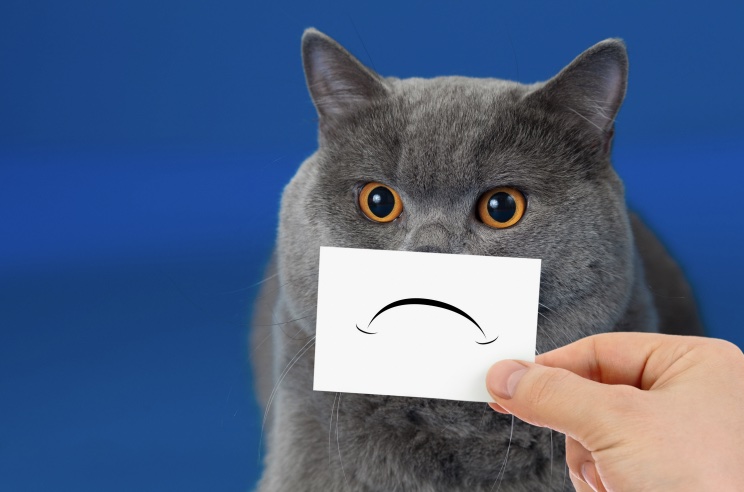Article At Glance:
- Laziness often stems from societal pressure and can mask underlying mental health issues.
- Depression presents symptoms beyond laziness, including sadness, hopelessness, and changes in appetite and sleep.
- Seek help for depression symptoms and practice self-care for emotional management.
If you want to know whether you are depressed or just lazy, we have therapist-approved indicators you need to know. Discover what makes depression different from laziness now.

Every day, I wake up and spend way too much time staring at my phone. For example, if you’re anything like me you woke up this morning and did some of the following things:
- Scrolled through Instagram
- Discovered that Priyanka Chopra-Jonas has launched a new collection of china and table accessories inspired by Indian design and culture
- Contemplated whether buying dishes sold by Priyanka Chopra-Jonas would bring you closer to your South Asian heritage
- Visited the website only to find that one plate will cost you $60
- Lamented capitalism and had an existential crisis about what it means to live between two cultures
All in all, this whole process probably lasted me about 30 minutes and culminated with a resounding chorus of, “Oh my God, I am so lazy, I need to get out of bed, what’s wrong with me?!”
And you know what, you might not have had a Priyanka moment this morning, but I am willing to bet that at least once you’ve had the “I can’t get out of bed” feeling. That’s what I want to talk about today. I’ve had this conversation with countless people, from friends and family to clients I work with, and it usually comes down to one pervasive and often harmful thought we have about ourselves: I’m just so lazy.
Today on the blog, we’ll explore laziness and its connection to Big D Energy (and just to be clear–this is a reference to depression, not Pete Davidson). We’ll consider big topics like whether that previous joke was in fact lazy and how laziness can be related to mental health. By the end, we’ll have some new ways of understanding and talking about laziness and depression.
Am I Depressed or Just Lazy?
I was thinking about this question and how to answer it, when another question came up: is laziness even a real thing? I think in order to think about if we are experiencing depression or just feeling lazy, we need to understand what these words really mean.
The idea of laziness is so entrenched in our culture and deeply affects how we see ourselves. Constantly throughout the day I chastise myself because I am not being productive enough. In an interview with WGN, Dr. Devon Price, author of the book Laziness Does Not Exist, explained how we often feel a sense of shame coming from the idea that we should be doing more.
We live in a culture where we are judged based on how much we produce. We view working long hours and the constant hustle as a character strength and people who aren’t willing or able to work in this way as morally lacking. Our worth, especially in the eyes of others, often comes from how hard we work, and as a result, not being able to do enough (whatever the hell that means) makes us feel like failures. Traditionally, laziness means we are bad. Sloth is even regarded as a deadly sin!

Branding people as lazy has often been a way to ignore their legitimate needs. When we think about who gets called lazy most often, it is clear how it’s a term used against people who might be experiencing mental health struggles or the effects of systemic oppression. Throughout history the idea of laziness has been weaponized, especially against BIPOC people and people from certain socio-economic statuses. In terms of mental health, people who have depression, anxiety, ADHD, and other experiences are often seen as lazy.
Dr. Price believes that this moral understanding of laziness is a lie, and in an interview with NPR’s Life Kit he explains:
“Laziness is usually a warning sign from our bodies and our minds that something is not working. The human body is so incredible at signaling when it needs something. But we have all learned to ignore those signals as much as possible because they’re a threat to our productivity and our focus at work.”
Feeling lazy often comes with guilt and shame. Laziness has meant there’s something wrong with us. Instead of that BS, what if we saw laziness as an indication that we need something? What might some of those needs be?

Depression vs. Laziness
In an episode of the No Stupid Questions podcast, Dr. Angela Duckworth suggests that when we notice ourselves feeling lazy, one of the most important things we can do is to ask a simple question: why?
Why do I feel lazy, and what is making me feel this way? When we take a closer look, there are often so many different answers, and one of them might be depression.
Depression is a common mood disorder that seriously affects our day to day lives. The National Institute of Mental Health reports that in 2020 an estimated 21 million adults in the United States experienced a major depressive episode. Let’s normalize talking about this!
Common symptoms of depression
Some common symptoms of depression sound an awful lot like how we describe laziness:
- Loss of interest in daily activities like hobbies, social interactions, and even sex
- Lack of energy, especially for small day to day tasks
- Trouble with concentrating and making decisions
- Slower thinking and processing time and body movement
- Feelings of worthlessness, guilt and shame
Additional Read: Feeling Numb: Signs, Symptoms & Strategies
When symptoms like these show up for us, we can feel a lot of judgment towards ourselves, and that is so understandable. We’ve been trained our whole lives to see laziness as a character flaw that we need to feel bad about. It will take time to unlearn that and accept that these feelings and experiences are telling us something about what we might want or need.

Depression vs. Sadness
It’s clear there is a connection between how we understand laziness and the symptoms of depression. However, it would be a mistake for me to suggest that traditional notions of laziness are the only way depression can manifest. One of the feelings most associated with depression is sadness, and sometimes rather than worrying about laziness, we might instead wonder, “Am I depressed or just sad?” In order to answer that, we can consider other symptoms of depression and how depression affects our daily lives.
Besides feeling lazy, depression also shows up in some of the following ways:
- Feelings of sadness, hopelessness, or worthlessness
- Increased feelings of anger or frustration
- Changes in appetite, sleeping habits, and energy levels
- Feelings of anxiety and restlessness
- Recurring thoughts of death, suicide, or suicide attempts
- Chronic physical problems like back pain or headaches
- Feeling generally sad, unhappy, or miserable without knowing why
If you notice any of these symptoms, there is a possibility that you are experiencing depression. Often, depression will affect your ability to complete your normal, day-to-day activities–things like school, work, social activities, and relationships with friends and family. It’s more than just feeling sad sometimes or feeling lazy sometimes. Depression actually changes the way you are able to engage with your daily life.

So Am I Depressed or Just Lazy or Just Sad?
Just because you experience feelings of sadness or laziness sometimes does not mean you are depressed. Even if laziness as a moral failure might not be real, we still have lazy moments every now and then, and those lazy moments can be really nice! It can be nice to have a lazy morning and scroll through your phone looking at high-end dinnerware sold by Bollywood-turned-Hollywood acting sensations. It can be nice to move slowly. It is human to feel lazy sometimes.

But you know what usually doesn’t feel very nice? Sadness. A lot of times sadness can feel scary, like something we need to run away from. Ultimately, though, sadness is human too. It makes sense to feel sad sometimes. Sadness, like all other feelings and emotions, is just a sensation happening in our bodies (if you are interested in learning more about this, check out the blog post on feelings vs. emotions by Best Therapies clinician, Christina Shore, LPC, R-DMT, MA).
One way I like to think about sadness is through a dialectic, which is used in a style of therapy called Dialectical Behavioral Therapy (DBT). A dialectic is two seemingly contrasting or opposite things that can both exist and be true at the same time. Sadness often feels bad and scary, and at the same time, sadness can be good. On one hand, we might think sadness is bad because it is unpleasant to feel in our bodies. On the other hand, we might recognize that our ability to feel sadness is necessary for us to feel deep empathy and compassion for other people–it’s necessary for us to connect. Sadness is not good all the time, but it’s not bad all the time either.
Sometimes though, these feelings of laziness and sadness feel more intense. We might feel like we experience these emotions most of the time or all of the time, and that is a sign that you might be dealing with depression. It might be time to explore change.
What Should I Do In Depression?
If you have been experiencing any of the symptoms of depression and noticed they have impacted your ability to live your day to day life, there are things you can do! These can include:
- Reaching out to your doctor,
- looking into therapy, and
- talking about what you are going through with people you trust can help.
If you are not ready for those steps, it is ok. There are little things you can do too. Taking care of ourselves looks different for everyone. It might look like journaling, going for a walk, playing with a pet, listening to “Break My Soul” on repeat while sitting at your desk, and creating little dance moves consisting of vigorous head, neck, and shoulder movements (s/o Adrienne Maree Brown)–I do all of these!
Bottom line
If you are experiencing depression, help is out there, and it gets better.

Sometimes when we are experiencing depression, we need to seek emergency help. That is ok.
If you are thinking of hurting yourself or attempting suicide, call your doctor or 911 immediately. If you are having thoughts of suicide, call 1-800-273-TALK (1-800-273-8255) to talk to a counselor at the National Suicide Prevention Lifeline. Call the same number and press “1” to reach the Veterans Crisis Line. If you live outside the United States, call your local emergency line instead.


